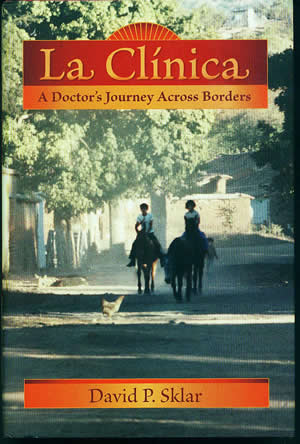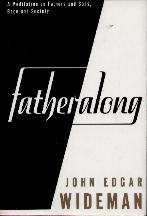
David Sklar's mid-life quest for meaning to him back to the Mexican community where he had leaned to be a doctor.
Earlier this decade, David Sklar resembled Dante Alighieri.
Dante’s dark woods were Sklar’s home and the hospital where he worked in Albuquerque, New Mexico, but, like the fabled Italian poet, he found himself adrift midway through his life’s journey.
Sklar’s marriage to his wife Laura was disintegrating, his body bore more and more signs of wear and tear and the path of finding meaning through being a doctor no longer sustained him.
His response: to return to the village in rural Mexico where he had begun his medical career in the early 1970s.
Sklar’s recounting of his memories of his earlier experiences and attempts to grapple with his life changes constitute the two major threads of La Clinica: A Doctor’s Journey Across Borders, a book that largely engages the reader even if it disappoints on several accounts in the end.
Sklar’s recollections of his first stint in the village supply much of the book’s best material.
At times demonstrating impressive powers of description-the book’s opening section about watching two young men die is a particularly strong example of his abilities-Sklar depicts both the grinding poverty he encountered in the village near the Sierra Madre mountains where he spent time during his early 20s and the healthy stock of idealism he brought to meet them.
He needed all of it.
As he recounts his time, the village challenged Sklar, pushing him far beyond the limits of his knowledge and previous beliefs. When his patients at the clinic talk about miracles and witches, he must fight his skepticism and listen with respect. When a man comes into the clinic with discolored blotches of burnt skin, Sklar consults a textbook about discover what to do. He even takes a turn as a dentist, waging a lengthy battle over the course of two days to yank an elderly man’s tooth from its socket before it becomes infected and potentially deadly.
Carl Wilson, who wears blue jeans and t-shirts and sports a bushy beard, is the clinic’s founder and Sklar’s mentor. Sklar finds himself drawn to the older man, who, despite being an outsider, has managed to earn universal respect from the village residents because of his commitment to their care.
But Sklar’s relationship toward his guide becomes muddied when he realizes eventually that not only does Wilson have no medical credentials, he also maintains a sexual relationship with at least two of the young men in the village.
Yet, as disturbing as this revelation is, Sklar does not act on it in any meaningful way during his initial stint. While he deserves credit for not omitting this unflattering choice, his lack of action does come off as a sin of omission. Even when he sees Wilson years later, in an episode described in the book’s epilogue, Sklar does not appear to express much outrage toward him, but rather wonders about what both men’s legacy will be.
This lack of moral courage is not the book’s only problem.
The information about the dissolution of Sklar’s marriage provides a necessary backdrop for his return to the village to find some clarity about the next stage of his life as well as how he had arrived at the point of confusion. Still, the book contains more descriptions about the couple’s initial courtship and Laura’s new apartment than is necessary and, in fact, ultimately serves to lessen the book’s impact.
These weaknesses aside, La Clinica does contain some provocative material for those who are concerned with social justice and health as well as for those who have at some point felt themselves unhitched from life’s moorings. And, while Sklar does not reach paradise like his Italian counterpart did many centuries ago-the book’s ending is far more ambiguous-he deserves some credit for having taken the journey and shared it with the reader.

